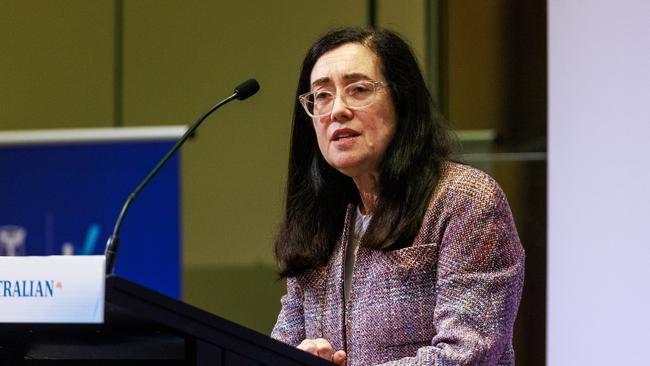ACCC leans towards rejection of $8.8bn Chemist Warehouse, Sigma merger on competition concerns
There is alarm within the ACCC at the competition implications of Chemist Warehouse merging with Sigma Pharmaceuticals, raising the prospect that the whole deal could be scuttled.

Chemist Warehouse co-founders and billionaire major shareholders Mario Verrocchi and Jack Gance face a huge battle to get their $8.8bn backdoor listing via Sigma Pharmaceuticals approved.
Regulatory body the Australian Competition and Consumer Commission has raised several fundamental concerns about the deal.
The revelation on Thursday that the ACCC has highlighted five “amber lights” over the deal – red lights meaning rejection and green a likely approval of a merger or takeover deal – has shifted the odds towards an ultimate rejection of the blockbuster reverse takeover.
The deal is designed to combine under one roof juggernaut retailer Chemist Warehouse and major pharmaceutical wholesaler Sigma.

Of central concern to the ACCC is the control Chemist Warehouse has over its franchisees which the regulator fears poses a competitive threat to the industry and “has the potential to raise barriers to entry, and significantly alter competitive dynamics in the industry”.
Another issue raised in the ACCC’s statement of issues, which typically reflects the regulator’s preliminary considerations on a major deal, was the likelihood the merger would result in prices increasing for consumers. As cost of living is a political football, the ACCC is in no mood to wave through another consumer behemoth which could squeeze consumers, especially when it comes to basic healthcare, insiders have told The Weekend Australian.
On Thursday, ACCC commissioner Stephen Ridgeway outlined the regulator’s initial thoughts about the reverse takeover of Chemist Warehouse into Sigma, which would give Chemist Warehouse an ASX listing and crystallise profits for the retailer’s founders. He focused on the structures which sit within the Chemist Warehouse model, namely its franchise system, which was proving a headache for competition.
Mr Ridgeway said the regulator had five “amber light” concerns, which might be enough to scuttle the merger or force a major restructure of the deal.
“It can be. This is only the first part of the process and depending on what submissions, arguments, information and documents we get and whether the (merger) parties offer up remedies, we will see,” he said.
“But more commonly than not, this number of amber light concerns would lead to a rejection, a no decision; but there have been occasions … where it has been turned around, even from a red light issue to a clearance.”

The ACCC is at just the second stage of its investigation but on the evidence so far it won’t clear the transaction, insiders say.
Implicit in the ACCC concerns is that state regulations have proved ineffective in the 550-store Chemist Warehouse network, and if applied to the 4000 stores in the Sigma retail network – including Amcal chemists – there would be more market impact.
While it was the franchise model that was central to Chemist Warehouse’s successful smashing of the barriers the Pharmacy Guild had imposed on the industry, the level of control and its ability to direct cashflow to the franchisor is now what worries the ACCC.
The argument from the Chemist Warehouse and Sigma camps are the ACCC concerns were expected and capable of being satisfied. But at stake here is not just the sale of a portfolio of chemist stores but a fundamental change in the Chemist Warehouse franchise model that is required.
Backers of the Chemist Warehouse deal argue their structure is already in place. Two other wholesalers are connected to retail networks in the Wesfarmers-owned API and Priceline marriage, and the EBOS Terry White team.
However, this could miss the point as the ACCC assesses deals based on what the market looks like now, and what the deal could do in the future. So the fact the other two could merge in the past is of little relevance.

But within the halls of the ACCC there is a view that it doesn’t just hand out free passes just because the other two are already in bed together.
As well, the fact Chemist Warehouse broke the Pharmacy Guild stranglehold is not a reason for it to dominate the market in the future.
The deal comes as the ACCC is attempting to clean up the mess created by the Armaguard-Prosegur cash transit merger when the regulator let the two combine to create a monopoly which now wants to extract higher prices from the banks.
The challenge will then be if deal architect and former merchant banker David Di Pilla, and Chemist Warehouse’s owners, the Verrocchi and Gance families, are willing to make those changes. This holds the key to the deal getting waved through without a lengthy court battle.
This deal is being closely watched in the market because the backdoor listing model is perceived by private equity as preferable to company floats which involve a greater degree of transparency. However, as the public gets a better view under the hood of the Chemist Warehouse business – as it steps closer to an ASX listing – it has become clear the myriad related party transactions sitting within Chemist Warehouse may not have passed IPO scrutiny.
Although the ACCC is yet to make any final decision on the deal or reach any final view on its competition concerns, its initial soundings don’t sound positive for the deal.
“This is a major structural change for the pharmacy sector, involving the largest pharmacy chain by revenue merging with a key wholesaler to thousands of independent pharmacies that in turn compete against Chemist Warehouse,” Mr Ridgeway said on Thursday.
“This lessening of competition may lead to reduced service quality for goods and services provided in pharmacies, as well as higher prices for consumers. The transaction may also weaken the competitiveness of the different product and services offered by Sigma’s banner pharmacies.
“We have identified a range of preliminary competition concerns, including at the retail level and as a result of the proposed integration of the merged firm across the wholesale and retail level.”
The ACCC has invited submissions from interested parties by June 27 as it further investigates the deal. It is set to make a final decision on September 5.







To join the conversation, please log in. Don't have an account? Register
Join the conversation, you are commenting as Logout